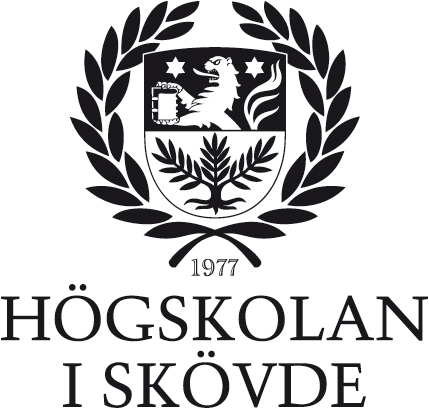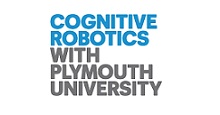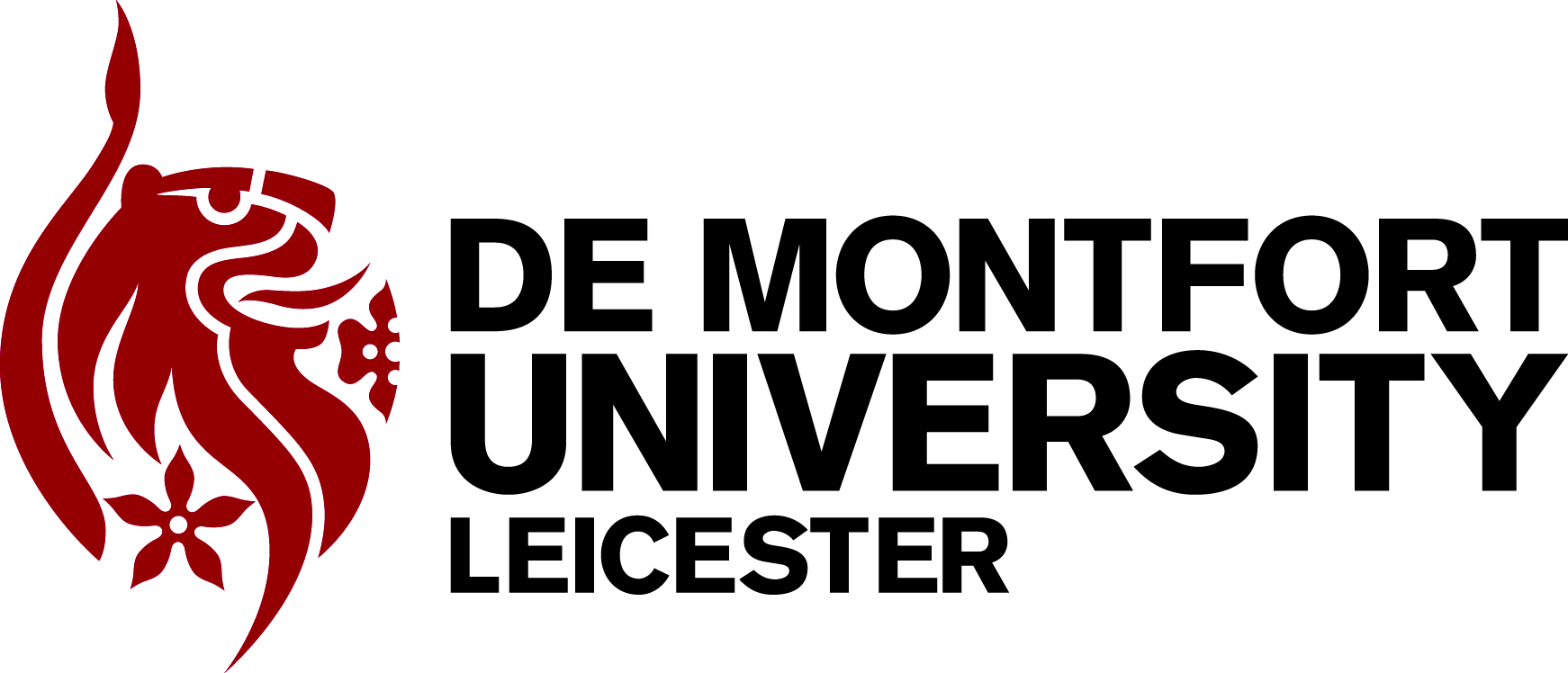Our Partners

The Interaction Lab, directed by Prof. Tom Ziemke, is part of the Informatics Research Centre at the University of Skövde (Swedish: Högskolan i Skövde = HIS). The lab consists of more than 20 researchers, working on different aspects of cognitive and interactive systems, including cognitive robotics, computational modelling, human-machine interaction, and social interaction.
Key Persons:
- Prof. Tom Ziemke, full professor of cognitive science/robotics at HIS, received his PhD from the University of Sheffield, UK. His main research interest is the role of the body in cognition, emotion, and social interaction. He was coordinator of FP6 IP ICEA and was/is principal investigator in FP7 projects ROSSI, ROBOT-DOC, and NeuralDynamics. He is a member of the executive committee of EUCogIII. He has more than 100 publications, is associate editor of the journals Cognitive Computation and New Ideas in Psychology, and has edited two books on embodied cognition and social interaction.
- Prof. David Vernon recently joined HIS as a full professor in informatics. His expertise is in cognitive systems and computer vision, in general, and cognitive architectures, in particular. He was technical coordinator of the team that created the iCub, an open-source cognitive humanoid robot (www.icub.org). He was coordinator of the networks euCognition and ECVision. He has authored three books, edited another three, and published over 100 papers. He is editor of the Springer series Cognitive Systems Monographs.
- Dr. Serge Thill, associate professor of cognitive science, received his PhD from the University of Leicester, UK. He joined HIS in 2008 as a postdoc in ROSSI. His main research interest is the modelling of the mechanisms underlying human embodied cognition and social interaction, with applications to cognitive robotics . He was PI for a collaborative project with Volvo Cars on human-car interaction (which ended in early 2013).
- Dr. Paul E Hemeren, senior lecturer in cognitive science, received his PhD from the University of Lund for a thesis on human action representation and the perception of biological motion. His main research interests are in human and robot action perception and understanding.

The main research topics of the Robotics & Multibody Mechanics (R&MM) research group, at the Vrije Universiteit Brussel (VUB), can be divided into physical human-robot interaction (pHRI) and cognitive HRI (cHRI). Core technology since 1995 is the design and control of variable impedance actuators for embodied intelligence principles as safety, energy efficiency and adaptability. Probo is developed by R&MM as an intelligent huggable robot emotionally interacting with hospitalised children and serve as robotic test platform to study cognitive and physical HRI. Different experiments with Probo and children autism have been performed and showed a more efficient therapy compared to a human. The robot is powered by series elastic actuators to ensure intrinsic safety and the soft and huggable appearance. The group is/has been involved in four European projects (Viactors, Corbys, Cyberlegs, H2R). More detailed information is available at http://mech.vub.ac.be/robotics.
Key Persons:
- Prof. Dr. Ir. Bram Vanderborght received the degree in Mechanical Engineering at the Vrije Universiteit Brussel in 2003 with highest distinction. Since 2003 he was researcher at the Vrije Universiteit Brussel, supported by the Fund for Scientific Research Flanders (FWO). In May 2007 he received his PhD in Applied Sciences with highest distinction. The focus of his research was the use of adaptable compliance of pneumatic artificial muscles in the dynamically balanced biped Lucy. In May 2006 he performed research on the humanoids robot HRP-2 at the Joint Japanese/French Robotics Laboratory (JRL) in AIST, Tsukuba (Japan) in the on-going research “Dynamically stepping over large obstacles by the humanoid robot HRP-2”. He received a post-doc grant with mobility grant from the FWO. From October 2007-April 2010 he worked as post-doc researcher at the Italian Institute of Technology in Genova (Italy) on the humanoid robot iCub and compliant actuation. Since October 2009 is appointed as professor at the VUB. Since October 2011 he is part-time research director at Universitatea Babeş-Bolyai (DREAM partner UBB), Department of Clinical Psychology and Psychotherapy with a project on Robot Assisted Therapy with ASD children. He is author/co-author of 1 scientific book in the Springer STAR series, 2 science popularizing books about robots, 33 journal papers and about 90 international conference papers.
- Prof. Dr. Ir. Dirk Lefeber obtained a PhD in Applied Sciences at the Vrije Universiteit Brussel, in 1986. He is head of the Robotics and Multibody Mechanics Research Group. From 2000 to 2004 and from 2008 till now he is head of the department of Mechanical Engineering. He is a member of IEEE and of ASME. He is author/co-author of 4 books, 3 book chapters, 27 journal papers and about 60 international conference papers over the past 5 years.
- Dr. Pablo Gomez Esteban received, in March 2014 by the Rey Juan Carlos University of Madrid, his PhD in Information Systems Engineering for his thesis entitled “Cooperation and Competition in Emotional Robot Societies” with highest distinction. His research has been addressed towards decision making processes within competitive and cooperative environments; the impact that affective factors have in such processes; and designing and implementing those models to be used in non-expensive platforms (like the AiSoy1 robot) within domestic environments.
- Greet Van de Perre received her degree in Electro-Mechanical Engineering in June 2011 from the Vrije Universiteit Brussel. In September 2011, she started a PhD at the Robotics & Multibody Mechanics Research Group of the Vrije Universiteit Brussel, under supervision of prof. dr. ir. Bram Vanderborght. Her research consists of investigating how gestures and body language can be generated by social robots, and how they can contribute to the human-robot interaction and the possibilities of Robot Assisted Therapy.
- Ramona Simut received her M.S. degrees from Babeş-Bolyai University, in 2011. From 2008 to 2011 she worked as a psychologist at the Research Department of Autism Transylvania Association on the project of Using the social robot Probo in therapy for children with autism spectrum disorders (ASD). From September 2011 to present she is a PhD student with the research focus on the clinical use of social robots for ASD children at the Clinical and Life Span Psychology Department of Vrije University of Brussel. Her research interests include developing robot assisted therapies for children with autism, perception of the child-robot interaction, responses to robots of ASD children.
- Cao Hoang Long was born in Vietnam in 1988. He received his Bachelor degree in Mechatronics from Can Tho University in 2010, and Master degree in Electromechanical engineering from the Vrije Universiteit Brussel in 2013. From September 2013, he has been working in the Multibody Mechanics and Robotics research group at VUB as PhD student.

Babeş Bolyai University (UBB) is one of the most prestigious and one of the oldest educational and scientific establishments in Romania (www.ubbcluj.ro). UBB will be able to ensure the access to all the psychological therapy facilities required by DREAM. Importantly, UBB will facilitate the access of the team members to a nationally unique Clinical Neuroscience -fMRI/EEG- Platform and to the specialists and facilities provided by the Babeş-Bolyai PsyTech Universitary Clinique (www.psyctech.ro). Researchers and psychologists from this department have expertise in running clinical trials. UBB has performed research towards the use of robots for both ASD (collaboration with VUB) and elderly care. UBB is the leading Romanian group in the field of autism therapy and has introduced/adapted ADI and ADOS in Romania (with Prof. Daniel David as the PI and the principal author of the adaptation) and they have trained over 400 Romanian professionals all over the country in evidence-based intervention for autism in a consortium grant (headed by a Bucharest partner), in which Prof. David was the principal investigator for training (ESP member Autism Speaks was a partner in this project).
Key Persons:
- Prof. dr. Daniel David is Professor at UBB and Mount Sinai School of Medicine (USA), head of Department of Clinical Psychology and Psychotherapy, and President of the UBB Research Council. He has introduced, at international standards, cognitive-behavioural therapies (including virtual reality therapy, robotics therapy/robotherapy, and genetic counselling) in Romania. He has major innovative contributions to the development of diagnostic and psychotherapy internationally, and is the most cited Romanian psychologist in the international literature. At the national level he introduced the evidence-based movement in psychological assessment and therapies (www.clinicalpsychology.ro).
- Dr. Aurora Szentagotai is associate professor at UBB. She is a Romanian Board of Psychologists-certified senior psychologist and supervisor in clinical psychology and cognitive-behavioural psychotherapy (CBT). She is also supervisor in CBT at the Albert Ellis Institute, New York, and vice-president of the Romanian Association of Cognitive and Behavioural Psychotherapies. She has a significant research expertise in the clinical field. She has published in highly visible journals such as Journal of Affective Disorders, Behaviour Research and Therapy, Clinical Psychology Review, Journal of Clinical Psychology, Journal of Clinical Psychiatry. She has supervised several randomized clinical trials, and has been involved in numerous research projects related to evidence-based interventions in psychopathology.
- Dr. Sebastian Pintea is a Senior Researcher with a university degree in both Sociology and Psychology, teaching Advanced Research Methods and Data Analysis at master and PhD level. He has large expertise in statistical methods, experimental design and psychological data analysis.

The Centre for Robotics and Neural Systems, part of Cognition Institute at the Plymouth University (PLYM), is one of the leading international groups in the area of interactive robotics, artificial cognitive and cognitive modelling. The Centre has 13 academic staff and over 35 PhD students and postdocs. PLYM has substantial experience in human-robot interaction and cognitive robotics pioneering new robot technology for HRI such as the retro-projected face. In the ALIZ-e project PLYM spearheads the development of the science and technology behind human-robot interaction for young children applied in hospital settings. PLYM specifically focuses on developing biologically inspired action selection mechanisms using memory as the central mechanism for governing autonomous behaviour.
Key Persons:
- Prof. Tony Belpaeme is Professor in Cognitive Robotics at Plymouth University, UK. He is affiliated with the Centre for Robotics and Neural Systems and the Cognition Institute, and is a member of the College of the EPSRC. His research interests include human-robot interaction, cognitive robotics, the influence of language on cognition and artificial intelligence in general. Belpaeme coordinates the FP7 ALIZ-E integrated project, which studies the science and technology behind long-term human-robot interaction and focuses on HRI for young users. He was recently or is currently involved in the EPSRC Concept project, studying novel HRI to support robot tutoring, the FP7 ITALK project studying the integration between action, language and knowledge in cognitive robots, the FP7 ROBOT-ERA project which studies service robots for elderly users and the Marie Curie ROBOTDOC ITN, a European doctoral training project. Belpaeme has authored over 100 publications on cognitive robotics, human-robot interaction and cognitive science. He is member of the IET, ACM, IEEE and serves on the IEEE/ACM Human- Robot Interaction Steering Committee and has been elected as Programme Committee chair for 2014 edition of the IEEE/ACM International Conference on Human-Robot Interaction.
- Prof. Angelo Cangelosi is Professor in Artificial Intelligence and Cognition at Plymouth University. His main research interests lie in evolutionary robotics and the modelling of cognitive development on robots. He coordinated the FP7 ITALK project, and currently coordinates the ROBOTDOC Marie Curie ITN and the EPSRC BABEL project. Cangelosi heads the IEEE Autonomous Mental Development Technical Committee, and publishes prolifically on evolutionary systems, language and cognitive robotics.

The Intelligent Systems and Biomedical Robotics Group (ISR) at Portsmouth University (PORT) is devoted to computational intelligence and its real-world applications. PORT has substantial experience in multi-sensory data fusion, especially sensing and analytics for multi-camera systems. PORT specifically focuses on developing data-fusion architecture for bridging the gap between multi-sensory hybrid data representations, and a computational framework has been implemented into applications with significant impact including multi-fingered robotic manipulation, human hand gesture recognition, vision based human motion analysis and fault diagnosis.
Key Persons:
- Prof. Honghai Liu is a Professor of Intelligent Systems and Robotics and the director for the ISR at the University of Portsmouth. Honghai’s main expertise is on learning motion in robots and humans, in particular sensor-fusion based multifingered manipulation and human motion behaviour learning. Honghai has developed an approximate-reasoning based theoretical framework for bridging the gap between hybrid representations and have implemented into multifingered robot manipulation, vision-based human motion analysis, large-scaled marine engine fault diagnosis and intelligent vehicle control. Honghai actively serves his research communities, he is an associate editor for IEEE Transactions on Industrial Informatics, IEEE Transactions on Fuzzy Systems and IEEE Transactions on Human-Machine Systems, he is also Programme Chair for International Conferences ICIRA2008/2009/2010/2011, and IEEE SMC2013, and the elected chair for IEEE Intelligent Robotics Task Force of Computational Intelligence Society.
- Dr. Zhaojie Ju is an Assistant Professor in Intelligent Robotics at the University of Portsmouth, UK, he is affiliated with ISR. He has intensive experience in sensor-fusion based techniques for human motion/hand gesture recognition. He has published numerous peer-reviewed papers in leading journals of his areas.
- Dr. Hui Yu is an Assistant Professor in computer vision at the University of Portsmouth, UK, he is affiliated with ISR. He has intensive experience and expertise in human body motion tracking and recognition, facial expression modelling and 3D reconstruction. Hui has published numerous peer-reviewed journal papers in leading journals of his areas.

De Montfort University (DMU) is a leading research-oriented University in the UK with 22,000 students supported by 2,700 staff. It has an annual turnover of £132.5 million. The University has four Faculties, one of which is the Faculty of Technology which consists of three schools including the School of Computer Sciences and Informatics under which the Centre for Computing and Social Responsibility (CCSR) falls. The Centre is the largest research centre of its kind in the UK and one of the few in Europe. The CCSR is a leader in the area of ethics and ICTs including responsible research and innovation. The CCSR has undertaken and continues to undertake funded research for private organisations, professional bodies, NGOs, the UK government and the EU in the area of emerging technologies and ICTs, civil society organisations in research governance, responsible research and innovation in ICT and in human brain research. The organisation’s website can be found here.
Key Persons:
- Dr. Mark Coeckelbergh is Professor of Technology and Social Responsibility at the Centre for Computing and Social Responsibility, De Montfort University, UK. He is also co-Chair of the IEEE Robotics & Automation Society Technical Committee on Robot Ethics and is involved in European research projects in the areas of robotics and responsible innovation. Previously he was Managing Director of the 3TU Centre for Ethics and Technology. His publications include Growing Moral Relations (Palgrave Macmillan 2012), Human Being @ Risk (Springer 2013), and numerous articles in the area of philosophy of technology, in particular ethics of robotics and ICT. Additional information can be found at his website.

Aldebaran Robotics (ALD) is a French SME created in 2005 and based in Paris. In November 2012, the company has over 220 fulltime employees. The company conceives, develops, manufactures, and commercialises humanoid robots and corresponding control software. ALD is the world leader of autonomous humanoid robotics. The company delivered more than 3000 NAO robots in more than 45 countries. NAO, a 60cm tall, 2-legged first generation robot, is the only European humanoid robot available on the market. The company has 11 patents in the fields of mechatronics, software architecture and robot control, and has the following technical expertise: mechanical and kinematics design, motor control, electronics and sensors, bus and low level communication protocols, embedded software development, signal processing, image analysis, bi-pedal walking, motion planning. ALD is already active in different market segments: Academics and Research, mainstream education, entertainment and display, and is actively exploring new ones, such as personal assistance and specialised education. For the latter, Aldebaran Robotics decided to focus on autism and is today the only European robotics company with a dedicated Autism Business Unit (ASK NAO), led by Dr. Olivier Joubert. First focus has been a clear understanding of the needs/abilities of teachers as well as restrictions concerning robot use in schools. Based on this, a solution consisting of (1) the NAO, (2) an online interface to help teachers without skills in robotics/programming create educative sessions, monitoring performance and communicating with their peers and with parents, and (3) autonomous or semi-autonomous behaviours customised to individual children’s profiles, is developed by Aldebaran’s Autism Business Unit engineers. During the process, strong connections have been developed with local schools, researchers and parents in Europe and USA who are now highly involved in the project. Efforts have also been made to promote and facilitate scientific research on robotics and autism.
Key Persons:
- Dr. Olivier JOUBERT (Neuropsychology, Ph.D, 2008, University of Toulouse) joined Aldebaran Robotics in early 2011 to manage the Autism Business Unit activity and lead the design and the commercialization of a robotic and software solution for specialised education, focusing on autism, first in schools, then at home. Prior to this he worked as a researcher at MIT, Brain & Cognitive Sciences department, for a better understanding of visual cognition in neurotypical and autistic people thanks to a Simons Foundation Autism Research Initiative grant.
- Rodolphe GELIN (Ecole Nationale des Ponts et Chaussées, 1988, Master Degree AI, Université Paris VI) worked for 20 years at CEA (French Atomic Energy Commission) as a researcher in robotics. He works on robotics for assistance to disabled people. He was head of robotics, VR and cognitics program in CEA when he joined Aldebaran Robotics in 2008 as head of collaborative projects.
- Céline BOUDIER, (ENSTA ParisTech, 2008) joined Aldebaran Robotics in 2009 after a text mining internship at Exalead. She has developed behaviours (behaviours for sales demonstrations and events, games, serious and funny applications) for NAO, co-authored an article about emotion expression by NAO and co-invented a patent about a method and system for using a humanoid game-playing robot. She is now lead developer for the autism applications.